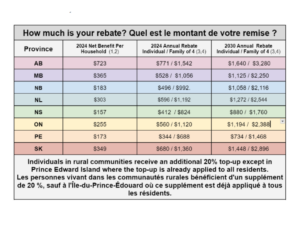In January 2019, the EAT-Lancet Commission compiled and reported on existing scientific knowledge on health and sustainable food practices from around the world for the first time. They found that food production is responsible for up to 30 per cent of global greenhouse-gas emissions and 70 per cent of freshwater use. These numbers, combined with growing global obesity on one end of the spectrum and malnutrition on the other, indicate a global food crisis for people and the planet. The report identified providing nearly 10 billion people with healthy and sustainable diets by the year 2050 as one of the most urgent health and environmental challenges of the century. In 2019, Health Canada updated Canada’s Food Guide, which is now more in alignment with the planetary health diet of the EAT-Lancet Commission report. Unlike previous food guides’ emphasis on food groups and recommended servings, the 2019 revision from Health Canada recommends eating “plenty of vegetables and fruits, whole grain foods and protein foods. Choose protein foods that come from plants more often.” It is a flexitarian diet, meaning that moderate amounts of meat, dairy and fish can be included. Heavily processed foods are frowned upon. To develop the Food Guide, Health Canada consulted with more than 6,000 individuals, including doctors, nurses, nutritionists, researchers, educators, and the Canadian public at large. The guide was prepared using scientific reports on food and health and excluded industry-commissioned reports given the potential for conflicts of interest. Canada’s Food Guide is consistent with science, widely consulted, and good for human health as well as the environment. LASER TALK: Canada’s New Food Guide and Planetary Health











